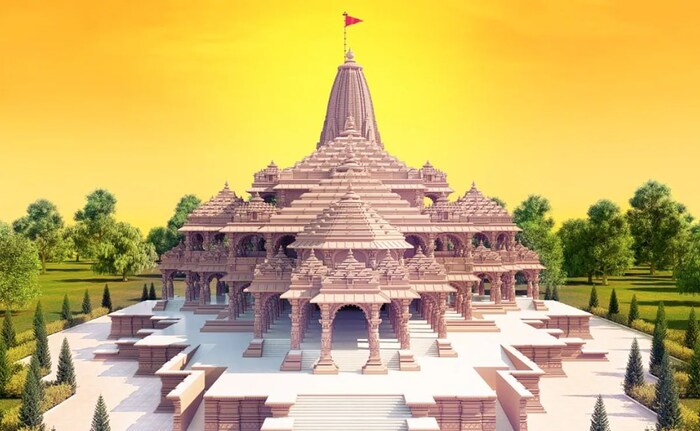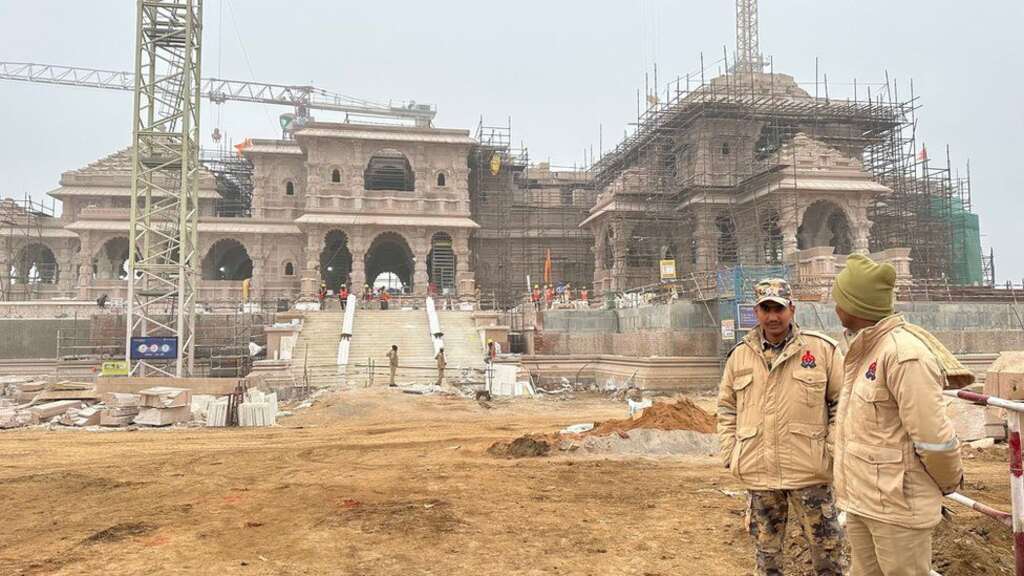In a landmark event with deep historical roots, Prime Minister Modi has inaugurated a new Hindu temple at Ayodhya, a site previously known for the Babri Mosque, demolished in 1992 by Hindu mobs. This inauguration is a significant moment in India’s history, reflecting the ongoing interplay between religion, politics, and communal relations.
A Glimpse into the Past
The city of Ayodhya, revered in Hindu mythology as the birthplace of Lord Rama, was also the location of the 16th-century Babri Mosque. In 1992, the mosque was razed by Hindu mobs, an event that sent shockwaves across the nation and led to one of the deadliest riots in India’s history, resulting in nearly 2,000 deaths. This tragic chapter in Indian history has left an indelible mark on the nation’s collective memory.

Ayodhya temple Temple Inauguration by PM Modi
Against this backdrop, the inauguration of the new temple takes on profound significance. Prime Minister Modi, a figure central to the Bharatiya Janata Party’s Hindu nationalist agenda, presided over the ceremony, which was attended by political and religious leaders. Modi’s presence and the government’s support for the temple project are seen as a strong message to his base, reaffirming the party’s commitment to Hindu nationalism.
Architectural Marvel
The newly constructed temple, a masterpiece of traditional Indian architecture, stands as a symbol of Hindu pride and cultural heritage. Featuring detailed carvings and constructed with historically significant materials, the temple is expected to draw pilgrims and tourists from around the globe, further elevating Ayodhya’s status as a religious destination.
Reflecting on Broader Implications
The construction of the temple at this historically contentious site is more than a religious milestone; it’s a reflection of India’s evolving national identity. For many, it’s a fulfillment of a long-held religious aspiration. However, it also raises concerns about the status of secularism and minority rights in India. Balancing these diverse and often conflicting viewpoints is a challenge that lies ahead for the Indian government.

With the opening of the Ayodhya temple, the site turns a new page in its history. The focus now shifts to how this development impacts India’s pledge to uphold secularism and protect minority rights. Prime Minister Modi’s emphasis on unity and harmony in his speech at the inauguration is a step towards healing old wounds and building a more inclusive future.
The inauguration of the Ayodhya temple is a pivotal moment in India’s history, intertwining religion, politics, and communal harmony. As India navigates this complex landscape, the eyes of the world remain fixed on how these events will shape the country’s path forward.
More Like This: Al Asad Airbase Attack: U.S. Personnel Injured in Sudden Strike in Iraq 2024



GIPHY App Key not set. Please check settings